Hong Kong people have always loved travelling but, under the pandemic, we have not been able to do so for almost two years. This has given us an opportunity to savour life locally, paying attention to things and people around us, as well as the needs of different communities and our neighbours. Whether in our daily meals or festive treats, it is not about the value - but rather the careful thought and effort we put into them, and selecting the materials used in the gifts we give those who mean a lot to us.
The change brought from a piece of chocolate
Louie Lu is from Taiwan. Two years ago he started Hello Cocoa, selling handmade “bean-to-bar” chocolates made with cacao beans from Taiwan and Central America. What got him started was his knowledge and passion for chocolate, as well as his love for his son.
Louie’s son Coco was diagnosed at age three with autism, and suffers physical handicap and delayed development, which hinder him from taking care of himself. When Coco was ten, Louie and his wife went with their son’s school to visit a sheltered workshop for people with special educational needs (SEN). “We saw workers performing mundane tasks, and didn’t want our son to live such a life when he grew up,” recalls Louie, who wanted his son to have better opportunities and become self-reliant.
Louie once tried running ice cream and coffee shops, only to find these require skills with which people with SEN may not be equipped. “The thinking of autistic students is very straightforward,” explains Louie. “There are no go-arounds and you have to give crystal clear instructions.
“It’s relatively simple to make chocolates, however. My son could help out with stirring the chocolate and grinding cacao beans,” says Louie. So, in 2019, he started a social enterprise called “Hello Cocoa”. Apart from Louie and his wife, the staff comprises entirely people with SEN.
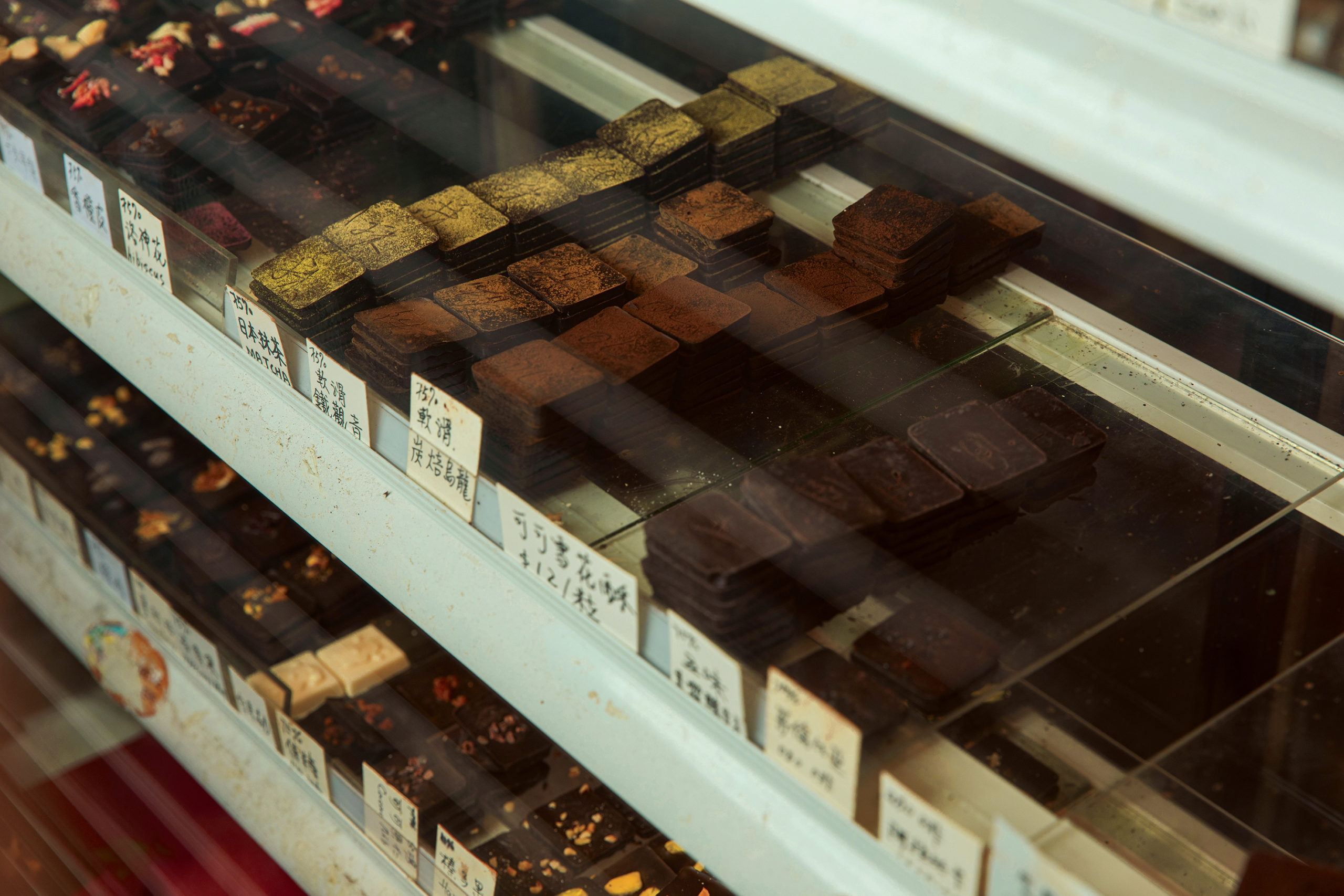
“Last April, Hactl invited us to make over 2,000 boxes of handcrafted chocolates for its staff, to celebrate the company’s 45th anniversary. It was the first time we had collaborated with a large enterprise, or produced such a large amount of chocolates.” Louie says a total of thirteen SEN employees took part in the production. Everybody confronted the challenge as a team, while he patiently offered guidance and adjusted staff duties.
“Affixing stickers and bagging chocolates were the simplest tasks, which most employees could grasp; whereas more complicated processes that require precise movement and coordination, such as tempering the chocolate, pouring it into moulds, then filling the chocolates might not be possible for everyone. Coupled with the complication of attention deficit disorder in some, staffing arrangements and time allocation were pretty challenging,” explains Louie.
They all made it in the end. To Louie, it was a valuable learning experience for both staff and the social enterprise. “We are very grateful to Hactl for this valuable opportunity. Not only did I gain a better understanding of my staff’s abilities, but also how I can better cooperate with companies in the future. Business has been challenging under the pandemic, so we’re very grateful for Hactl’s support, which allowed us to provide work opportunities to SEN graduates”: something which Louie says has always been a challenge. Many get a job via referrals from the Labour Department, and employers receive subsidies for the first few months. But then, the graduates are often laid off - which he says is an immense frustration.
Looking forward, Louie hopes to organise courses with educational institutions, to train SEN graduates as professional chocolate makers.
Customers are delighted to taste handcrafted chocolate, and those who make it also receive an income and share the happiness of their accomplishments. “I didn’t realise my son had any talent when he stayed at home most of the time. But, when he joined us at the shop, chatting with customers and receiving praise, he was overjoyed. Buying his favourite green tea cake with his own money also makes him very happy,” says Louie.
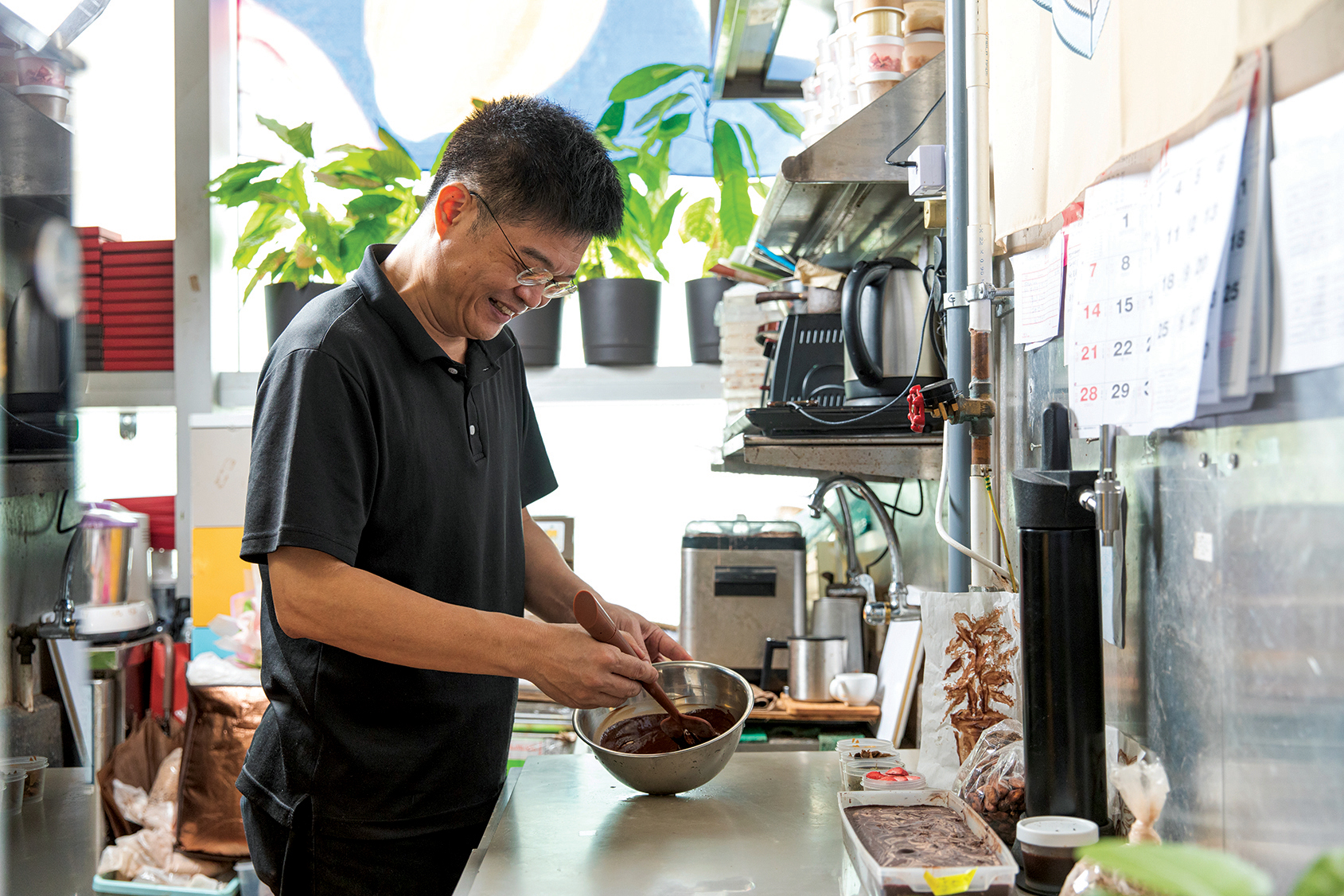
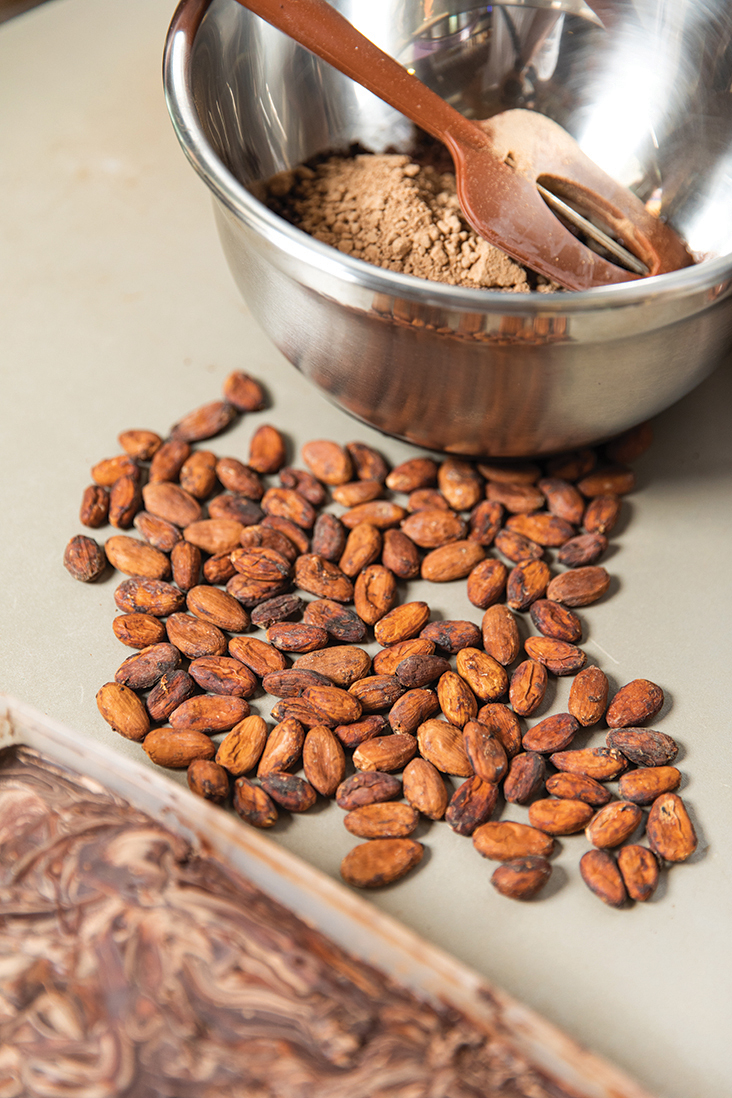
“Blue is gorgeous too”
An image caught Chan Ching-man’s attention when she visited SuperTerminal 1. Looking through the viewing windows in the 2/F Knowledge Lab, she noticed numerous tow trucks constantly dashing around. With her magic pen, she drew this scene: the bustling tow trucks, with stationary dollies; a sunset ray shines on them, conjuring a restful feeling.
Chan is a student of New Life Psychiatric Rehabilitation Association’s (New Life) painting programme. This year, Hactl invited New Life students to visit its terminal, and challenged them with the special task of creating cargo terminal-themed paintings. The two selected artworks would also be used to decorate beeswax wrappers – an environmentally-friendly alternative to plastic – for the staff gifts marking the company’s 45th anniversary.
Chan was elated when she learned her artwork had been selected. “I felt blissful and satisfied when I heard people appreciate my piece. I hope Hactl staff will also like it, with the artwork bringing a sense of familiarity, reminding everyone to take a look out of the window and enjoy a comforting moment.”
New Life is a non-profit organisation that has been serving people in recovery (PIR) for 56 years. The Association advocates inclusivity to foster increased connection between PIR and society. “Our students were thrilled when they were given such an opportunity; many of them had never been to an air cargo terminal. We handed out smart phones and instructed them to photograph what interested them during the visit,” says Carmen Au, New Life Building Sheltered Workshop Manager and Expressive Arts Therapist.
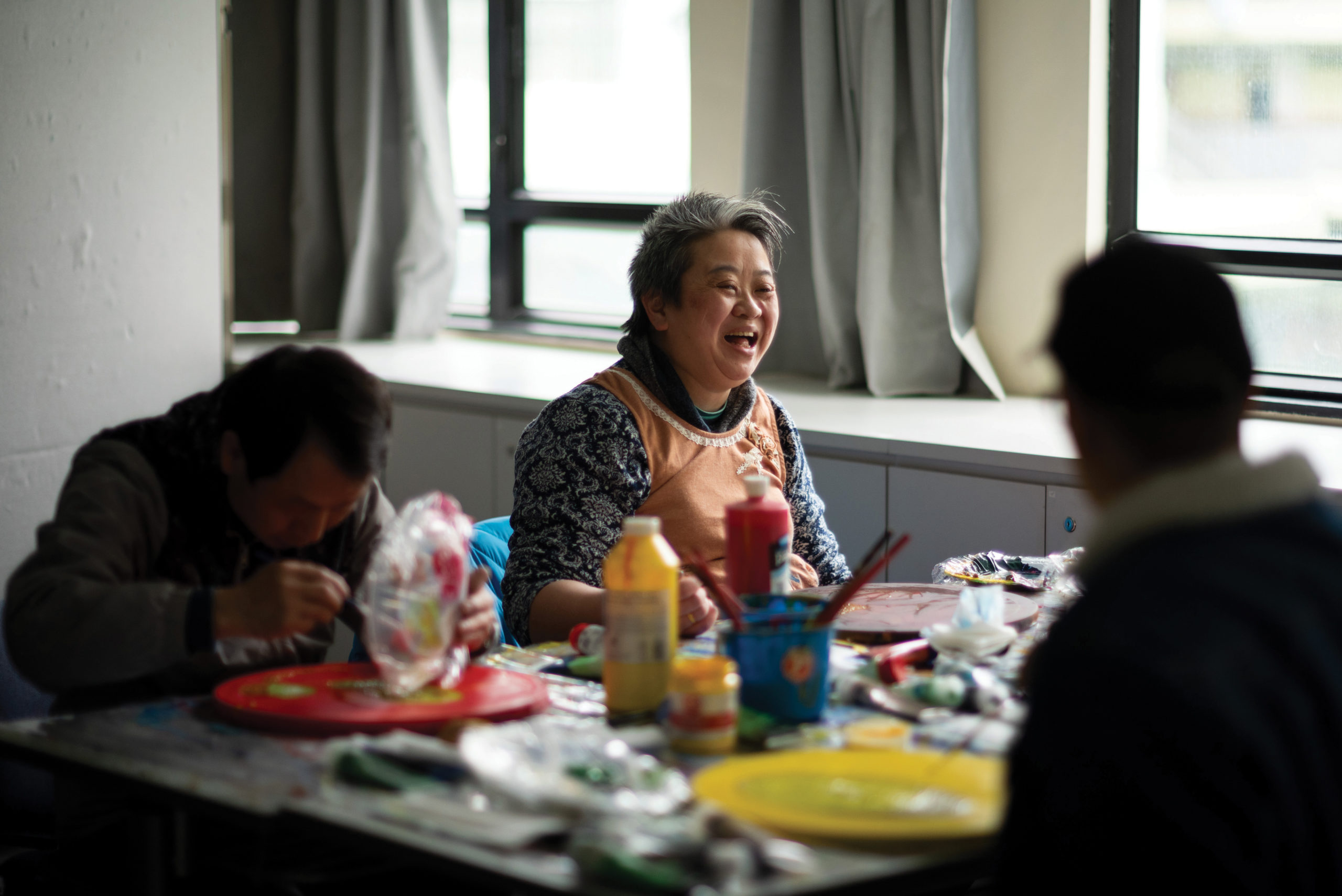
Student Wong Kai-lin’s painting is another piece that was selected to be used on the beeswax wrappers. With her creativity, a heavy “roller bed” becomes a picture filled with vibrancy, life and colour: the blue roller bed, red cross-shaped patterns, yellow roller balls and white cargo. “I couldn’t imagine how such small roller balls help move such huge cargo. This reminds me of my life: when I encounter difficulties like my bodily challenges, there are always many people working together to get me through,” continues Wong.
Wong says painting helps her to process her emotions. “At first when I used blue, it reminded me of family issues. However, when I had finished, people praised my work and my drawing was selected. I feel really happy: I didn’t realise blue was pretty, too. All my distress was gone.”
To Sarah Mui, co-founder of One Bite Design Studio, this programme enables PIR to visit parts of community they are not familiar with. One Bite Design Studio has collaborated with New Life since 2020 and started the “gift330” programme, which sounds like “body, mind and spirit” in Cantonese. It aims to turn artworks by PIR into saleable household items. Sarah was involved in the collaboration between Hactl and New Life.
“We always talk about ‘inclusivity’: allowing people with diverse abilities and backgrounds to get to know and accept each other,” says Sarah. “I hope other corporates will take a step like Hactl and give more support to PIR. Getting involved in the community and then expressing feelings and thoughts through art are crucial parts of the recovery process.”
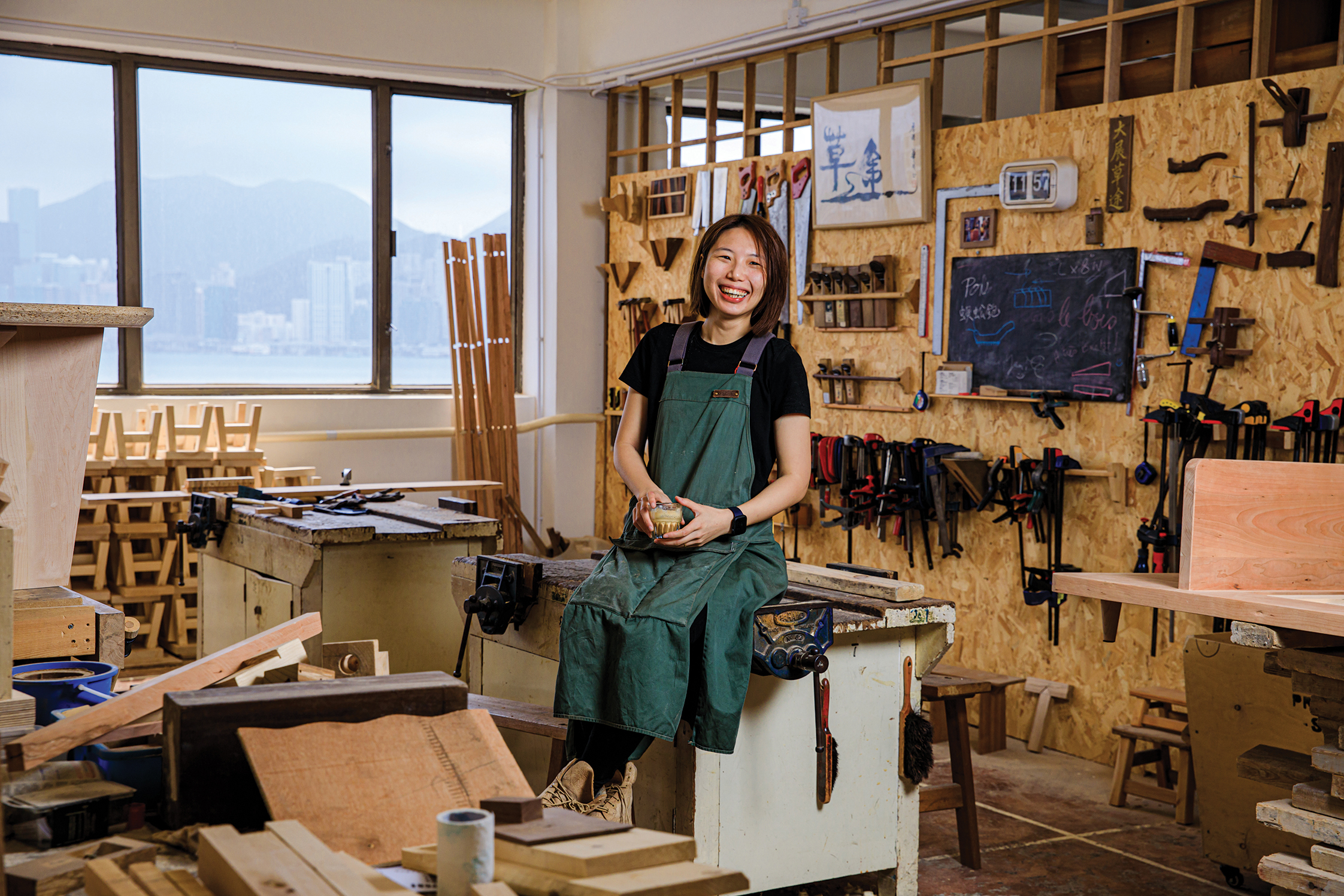
New life for old pallets
Apart from slowing our pace and making us pay attention to the needs of people around us, the pandemic has also allowed us to treasure Hong Kong and reflect on our relationship with it. As a green terminal, Hactl did not stop caring for the environment in the past year, and even encouraged staff to live sustainability through various creative projects.
At air cargo terminals, ocean container terminals and factory districts throughout Hong Kong, wooden pallets are everywhere. Due to their size and the nails used, recycling can be difficult: so companies are reluctant to do this, and a lot of wooden pallets end up as landfill.
How can we make better use of this valuable material that is all around us? Hactl invited social enterprise Cou Tou Studio to suggest ways to upcycle disused wooden pallets: “Pallets are mostly made from sturdy woods such as pine, which are very tough and have amazing load capacity. There could be numerous applications, given suitable processing,” says Yung Wing-yan (Yan), founder of Cou Tou Studio.
This year, Yan’s team has produced eco-friendly furniture and art installations for Hactl’s refurbished offices. They even upcycled the familiar disused pallets into a Hactl 45th anniversary memento for staff.
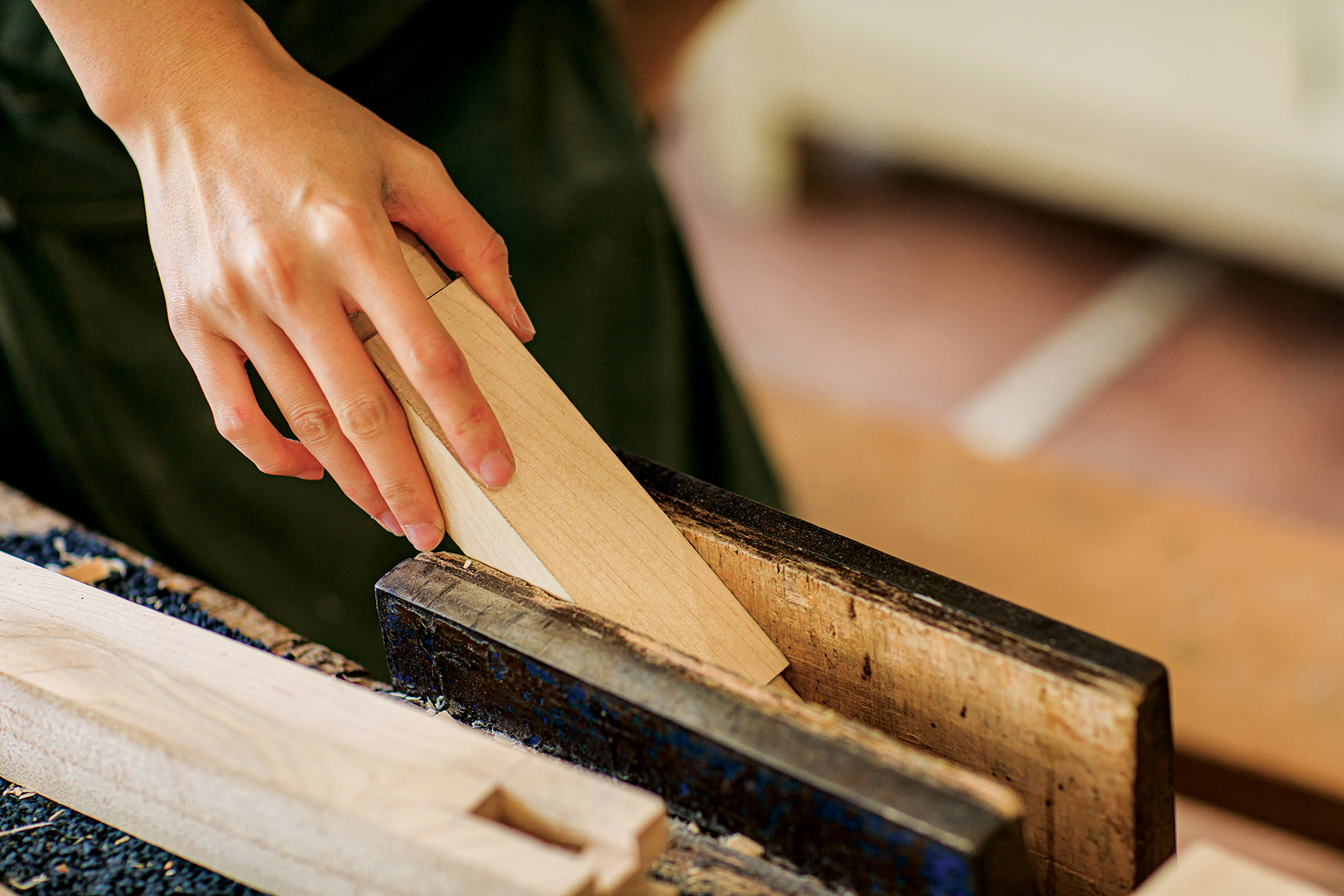
“We used approximately 3,000 wooden slats to make the 2,400 trophies. Dismantling the pallets, sanding them, cutting them into pieces of the exact same size, polishing them and assembling them into trophies, then attaching copper plates to each of them took us a few months to complete,” explains Yan. “All the mementoes were made by hand, so it was quite a challenge to produce such a large quantity!”
Each trophy comprises three wooden cubes, respectively from discarded pallets, disused furniture and eco-friendly cherry wood. Two small wood strips connect the three cubes, which can be removed to create numerous useful and decorative applications. To engage staff, Hactl suggested 44 different uses, then staged a competition inviting suggestions for a novel 45th practical use. The competition drew a great response, with staff sharing their designs via videos.
In order to produce the finest trophies, Yan says she had to reject any that were substandard and re-make some. Despite the hard work, Yan was grateful to Hactl for the opportunity to co-create the mementoes. “This trophy may look ordinary, but a closer look reveals a lot of well-designed and -crafted details. The mementoes could have been produced from readily-available materials at a lower cost, but Hactl wanted to use recycled materials; not all companies would have put in this extra cost, effort and time.”
At first glance, chocolates, eating utensils and their wrappings, and trophies may not have much in common – and they certainly cannot be regarded as treasures. But their uniqueness lies in the thoughts of the giver – the hope was that everyone who received these gifts and participated in their production would be blessed, and might also feel encouraged to give a little more thought to the community and environment around us.

